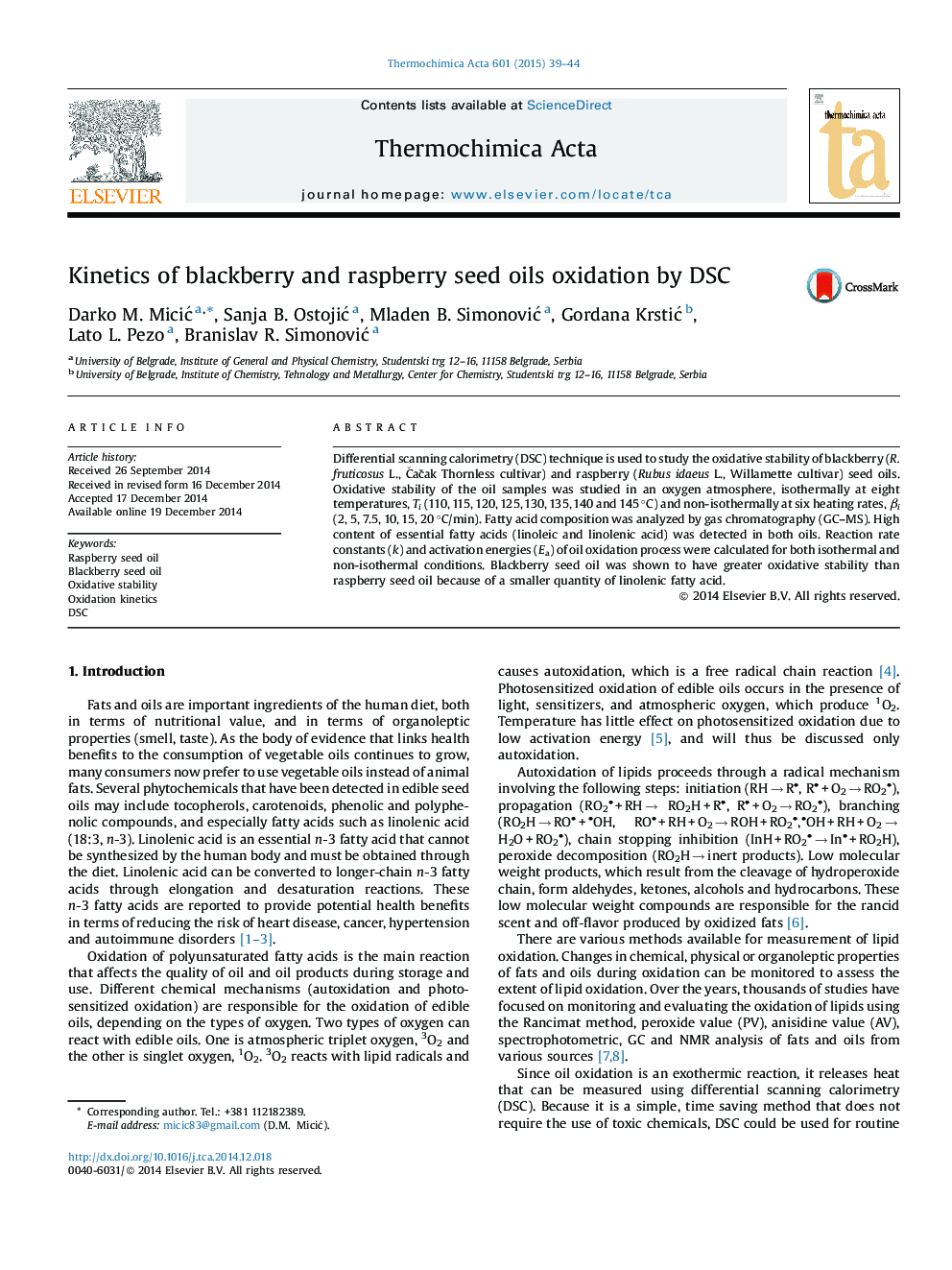| Article ID | Journal | Published Year | Pages | File Type |
|---|---|---|---|---|
| 673262 | Thermochimica Acta | 2015 | 6 Pages |
•Investigated oils were rich in essential fatty acids (linoleic and linolenic acid).•Raspberry seed oil had a favorable ratio of n-6:n-3 fatty acids for use in nutrition.•Both oils showed good oxidative stability, although they are highly unsaturated oils.•Blackberry seed oil was more stable in terms of oxidation than raspberry seed oil.
Differential scanning calorimetry (DSC) technique is used to study the oxidative stability of blackberry (R. fruticosus L., Čačak Thornless cultivar) and raspberry (Rubus idaeus L., Willamette cultivar) seed oils. Oxidative stability of the oil samples was studied in an oxygen atmosphere, isothermally at eight temperatures, Ti (110, 115, 120, 125, 130, 135, 140 and 145 °C) and non-isothermally at six heating rates, βi (2, 5, 7.5, 10, 15, 20 °C/min). Fatty acid composition was analyzed by gas chromatography (GC–MS). High content of essential fatty acids (linoleic and linolenic acid) was detected in both oils. Reaction rate constants (k) and activation energies (Ea) of oil oxidation process were calculated for both isothermal and non-isothermal conditions. Blackberry seed oil was shown to have greater oxidative stability than raspberry seed oil because of a smaller quantity of linolenic fatty acid.
